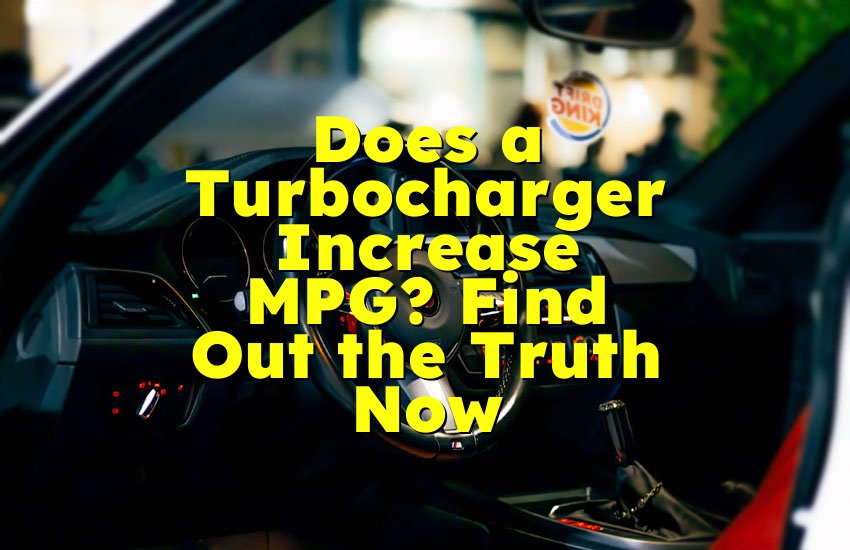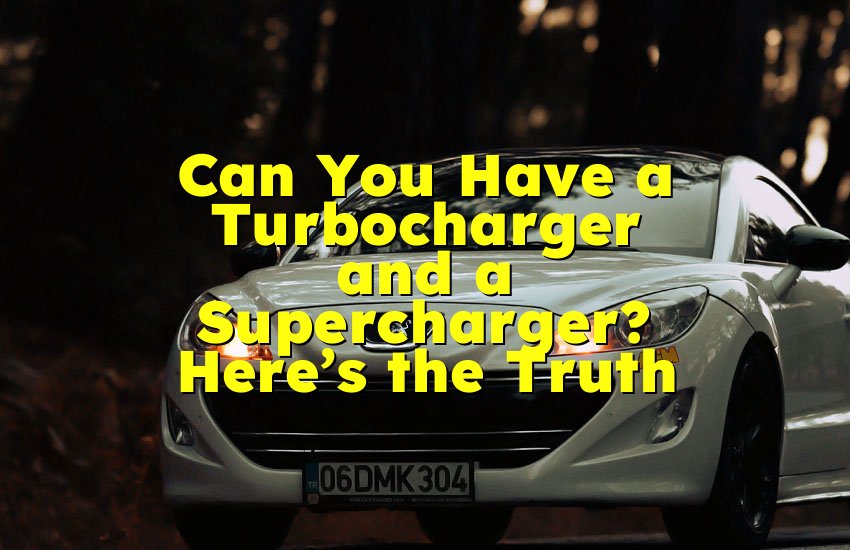As an Amazon Associate, I earn from qualifying purchases at no extra cost to you.
Bad Fuel Injector Symptoms You Should Never Ignore!
You are driving and suddenly your car feels strange. It shakes, loses power, or starts to use more fuel. You wonder what is wrong. Most people don't know that one small part like a fuel injector can cause big problems. A bad fuel injector can make your car run poorly, waste gas, or even damage the engine. But don't worry. In this article, you will learn the real symptoms of a bad fuel injector, how it feels, and what you can do before it gets worse.
Engine Feels Rough or Shaky
When your fuel injector is bad, one of the first things you might feel is a rough engine. Your car does not feel smooth like it used to. Maybe you feel it shaking when you stop at a red light. This is because the fuel injector is not sending the right amount of fuel into the engine. The engine needs a perfect mix of air and fuel to work well. When it doesn't get that, it becomes unbalanced and starts to misfire.
A misfire means the fuel is not burning correctly in one of the engine cylinders. You might hear the engine stutter or feel it jump. It can feel like your car is struggling to stay running. Sometimes the check engine light will turn on too. This is a warning that something is wrong in the engine, and often, the cause is a dirty or clogged injector.
The shaking can be worse when you are idling. That means when the car is on but not moving. You will feel the whole car tremble a little. This can be scary if you don't know what it is. Many people think the engine is about to break. But it might just be a dirty or leaking injector that needs to be cleaned or replaced.
Some people notice this problem when they start the car in the morning. A rough start can also be a sign of a bad fuel injector. The engine may take longer to start or sound rough at first. This happens because the engine is not getting the fuel it needs quickly.
Your car might also stall. That means it shuts off suddenly while you are driving or stopping. That can be dangerous, especially in traffic. A stalling engine can point to a major fuel delivery issue, often caused by bad injectors.
To fix this, a mechanic can test the fuel injectors with special tools. They might clean them with chemicals or replace them. It is always better to fix it early, or it can cause more damage and cost more money.
- Engine shakes during idle
- Engine feels rough when starting
- Stalling while driving or stopping
- Misfires from incorrect fuel flow
- Check engine light may turn on
Car Uses Too Much Fuel
Another clear sign of a bad fuel injector is your car starts using too much fuel. You might notice you are going to the gas station more often. This happens because a leaking or stuck-open injector is spraying too much fuel into the engine. The engine cannot burn all of it, so it wastes fuel.
The fuel-air mix inside the engine must be balanced. If your fuel injector is leaking, it sends too much gas. This causes the engine to run "rich." That means more fuel than air, which is not good. It makes your car work harder and waste fuel.
A rich engine also smells different. You might smell strong gas from the exhaust. Sometimes people say it smells sweet or sharp. This is a sign that unburned fuel is leaving the engine and going into the air. That is also bad for the environment.
When your car uses more fuel, your gas mileage gets worse. That means fewer miles for every gallon of gas. A car that once got 30 miles per gallon might now get 20 or less. That adds up quickly, especially if you drive often.
This problem is not just about money. Running rich for too long can damage other parts of your car. The oxygen sensor, spark plugs, and even the catalytic converter can wear out faster. These parts are costly to replace.
Some people try to fix it by using fuel system cleaners. Sometimes it works if the problem is just dirty injectors. But if the injector is broken or leaking, you need to replace it. That is the only real fix to stop fuel waste.
- Going to the gas station more often
- Engine runs rich with too much fuel
- Smell of gas or sweet fumes from the exhaust
- Poor gas mileage
- Possible damage to spark plugs or sensors
Hard Time Starting the Car
Have you ever turned the key, and your car just won't start right away? It cranks, makes noise, but it takes longer than normal to start. This can be a sign of a bad fuel injector. When the injector is not spraying fuel properly, the engine struggles to start.
In the morning or when the car has been sitting for a while, this problem becomes worse. Cold starts need a good fuel spray to help the engine fire up. If the injector is clogged, the fuel can't get through. Or if it is leaking, the fuel pressure goes down overnight.
Another thing that might happen is you turn the key and the engine starts, but then it shuts off quickly. Or it might take a few tries before the engine stays running. This can make you nervous, especially if you are in a hurry or in a parking lot far from help.
Starting problems are also linked to fuel pressure. A bad injector can lower the pressure in the whole system. Your fuel pump has to work harder, and sometimes it can't keep up. This adds stress on the pump, which can fail sooner too.
It can also cause your battery to wear out. If you have to crank the engine many times, it drains your battery faster. So one problem can lead to many more if you don't fix it in time.
Mechanics can run a fuel pressure test and also a leak-down test to see if the injector is the problem. Sometimes they use scan tools to check fuel trim data and misfire history.
- Car takes long to start
- Cranking without turning over
- Cold starts become hard
- Engine starts but shuts off
- Low fuel pressure caused by leaks
Loss of Power or Poor Acceleration
If your car feels weak, slow, or doesn't respond when you press the gas pedal, a bad injector might be the cause. The engine needs the right amount of fuel to produce power. When a fuel injector is clogged or damaged, it can’t spray enough fuel, so your engine can't work right.
You might press the gas, but the car doesn't move fast like it used to. It feels lazy. It might even jerk when you try to speed up. This is called hesitation, and it can be dangerous when merging into traffic or crossing an intersection.
Sometimes you feel the car is struggling when going uphill. The engine feels like it’s under stress. This can be caused by one cylinder not getting fuel from a bad injector. That means the engine is working with less power than it needs.
Also, if the fuel spray pattern is bad, the engine can get hot. It runs harder to make up for the weak fuel delivery. Over time, this can lead to overheating or damage to engine parts.
Drivers often think this is a transmission issue or maybe a dirty air filter. But often, the true cause is one or more injectors not doing their job. This can happen slowly, so people don't notice at first. But it gets worse with time.
To fix it, a mechanic can remove and test the injectors. Sometimes cleaning works, but often the bad injector must be replaced.
- Car feels slow or sluggish
- Poor response when pressing gas
- Jerks or hesitates while accelerating
- Weak power on hills
- Engine works harder and may overheat
Strange Smells from the Exhaust
Your car’s exhaust should not smell too strong. If it does, and you notice a smell like gas, oil, or something sweet and burning, a bad injector may be the reason. This smell often means unburned fuel is coming out of the exhaust.
A fuel injector that is stuck open or leaking can cause fuel to go into the exhaust system. That fuel does not burn in the engine. It ends up in the catalytic converter, which is not made to handle raw fuel.
This can damage the converter, which is very expensive to replace. It can also make your car fail an emissions test. In some places, this can stop you from registering your vehicle.
The smell is also a sign that your car is polluting more than it should. It's not just about money or performance. It's also about keeping the air clean and safe.
In some cases, you may even see smoke from the exhaust. This smoke can be dark or white, depending on how the fuel is burning. If you see smoke and smell gas, it's a strong sign that something is wrong with your fuel system.
- Strong gas or sweet smell from exhaust
- Fuel going into exhaust without burning
- Risk of damage to catalytic converter
- Smoke from the tailpipe
- Poor emission test results
Check Engine Light Turns On
One of the most common signs of a bad fuel injector is when the check engine light comes on. This light is a warning that the car’s computer found a problem. Many times, the problem is with the fuel system.
The car has sensors that watch how much fuel is used, how clean the exhaust is, and how the engine runs. If a fuel injector is clogged, leaking, or stuck, the sensors will know something is wrong. The light comes on to let you know.
You might not feel anything at first. Maybe the car still drives okay. But the light is warning you to check it before it gets worse. If you ignore the light, the problem can grow and damage other parts.
When a mechanic checks the code from the computer, it can show misfires or fuel trim problems. These codes can help point to which injector is bad. Then they can test it and fix or replace it.
Don't ignore the check engine light. It is your car's way of asking for help. Fixing it early saves you money later.
- Check engine light turns on
- Computer finds misfires or fuel issues
- Might not feel symptoms right away
- Sensors detect fuel imbalance
- Important to fix before more damage
Final Thoughts
Bad fuel injectors may seem like a small problem, but they can cause many big issues in your car. From shaking engines and poor fuel use to hard starts and strange smells, these signs can warn you early. The good news is, if you catch them soon, you can often fix the problem before it gets worse. Always pay attention to how your car feels and sounds. If anything changes, get it checked. A clean, working injector means a smooth, powerful, and safe drive every time.
| Symptom | What You Feel or See | Cause | Risk | Fix |
|---|---|---|---|---|
| Rough engine | Shaking, misfires | Dirty or clogged injector | Engine damage | Clean or replace injector |
| High fuel use | More gas station visits | Leaking injector | Poor mileage, more fuel cost | Replace bad injector |
| Hard starts | Long cranking or engine dies | Weak spray or low pressure | Wears battery and starter | Check and replace injector |
| Poor acceleration | Slow, sluggish response | Fuel not reaching engine | Unsafe driving, overheating | Injector cleaning or replace |
| Strange smells from exhaust | Strong gas or sweet burning smell | Unburned fuel in exhaust | Damage to converter | Replace leaking injector |
| Check engine light | Warning light on dashboard | Sensor picks up problem | Costly repairs if ignored | Scan and fix the injector |
Frequently Asked Questions (FAQs)
Is it safe to drive with a bad fuel injector?
Driving with a bad fuel injector is not safe in the long term. It may not seem serious at first, but a bad injector can cause your engine to misfire, stall, or use too much fuel. This can lead to accidents, especially if the car stalls in traffic. It can also damage your catalytic converter and oxygen sensors, which are expensive to fix. If you keep driving with this issue, your engine might suffer serious damage. It is best to get it checked and repaired as soon as possible.
Can a bad fuel injector cause misfires?
Yes, a bad fuel injector can easily cause engine misfires. A misfire happens when the engine does not burn fuel properly. If a fuel injector is clogged or not spraying the right amount of fuel, one or more engine cylinders will not work right. This makes the engine shake or run uneven. Over time, misfires can damage engine parts like spark plugs and pistons. Fixing the injector will stop the misfire and make the engine run smoother again.
Do I need to replace all fuel injectors if one is bad?
Not always. If only one injector is bad, you can just replace that one. But if your car has high miles, it might be smart to replace all of them. That way, you won't have another one fail soon after. Also, if the injectors are very dirty or old, cleaning them may not help much. A mechanic can test each injector to see which ones are weak or damaged. Then you can decide what is best for your car and your budget.
Is it expensive to fix a bad fuel injector?
The cost depends on the car and how many injectors need fixing. Cleaning a clogged injector is cheaper than replacing one. A single replacement can cost between $100 and $300 for parts and labor. If you need to replace all injectors, it could cost more than $1000. Some luxury or diesel vehicles are more expensive. It is always better to fix it early to avoid engine damage and save money in the long run.
Can a fuel injector leak inside the engine?
Yes, a fuel injector can leak inside the engine. This happens when the injector does not close properly and fuel drips into the cylinder. Over time, this fuel mixes with engine oil or causes the cylinder to flood. This can lead to engine knocking, hard starts, or even piston damage. If left too long, the extra fuel can wash away oil and cause major wear. If you smell gas or notice poor engine performance, get it checked right away.
Do I need a mechanic to fix a fuel injector?
It is best to have a mechanic fix or check a fuel injector. This is because modern engines are complex. Testing and replacing an injector needs special tools and knowledge. A mistake could cause more harm. However, if you are skilled with cars, you might clean or replace an injector yourself. Still, most people should go to a trusted auto shop for this kind of work.
Is it hard to clean a dirty fuel injector?
Cleaning a dirty fuel injector is not too hard, but it depends on how dirty it is. You can try using a fuel injector cleaner that you pour into your gas tank. It may help if the problem is minor. But if the injector is really clogged, you need a mechanic to clean it with special tools or remove it for deep cleaning. Sometimes cleaning is not enough, and the part must be replaced.
Can I drive without fixing a bad fuel injector?
You can drive for a short time with a bad injector, but it is risky. The longer you wait, the worse it gets. Your car might lose power, stall, or use too much gas. It also puts extra stress on the engine and can damage parts like spark plugs, sensors, and the catalytic converter. These parts are expensive to fix. So it is better to fix the injector as soon as you notice the problem.











